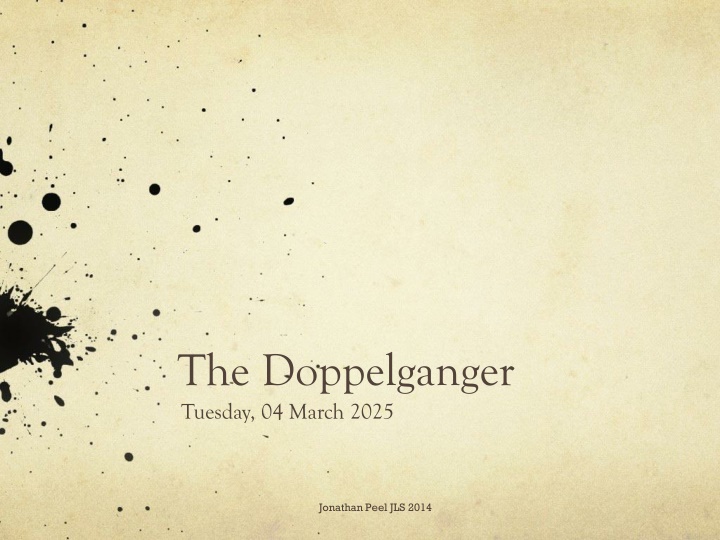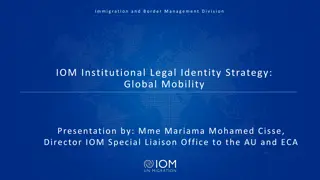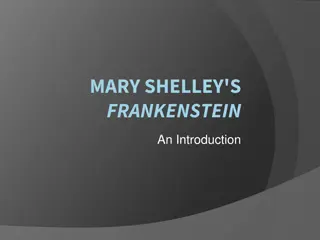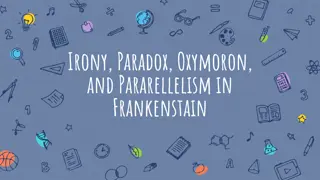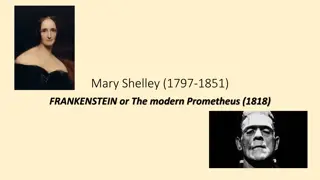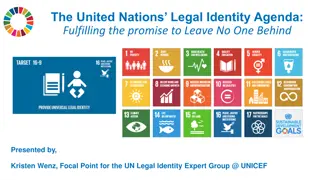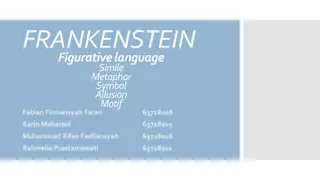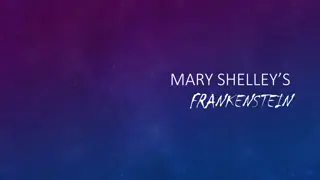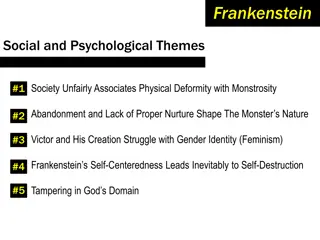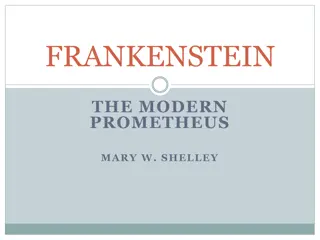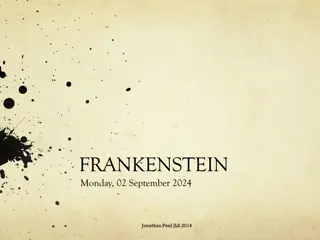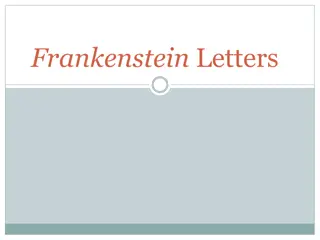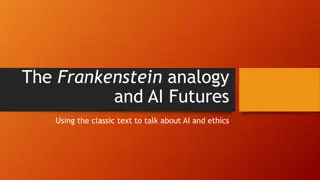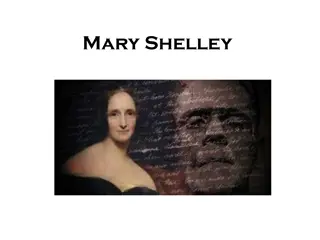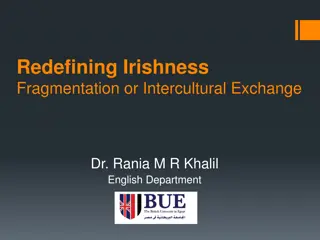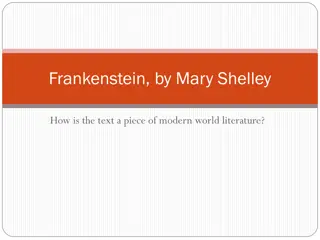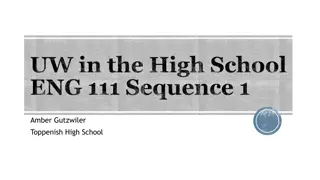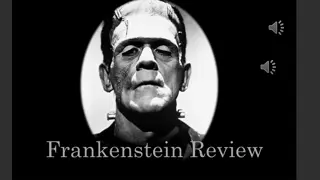The Doppelganger: An Exploration of Identity and Transgression in Frankenstein
An analysis of the theme of doppelgangers in literature, focusing on the psychological implications and narrative significance. Delve into the duality of characters, the eerie manifestations, and their portrayal as alter egos encapsulating identity crises. Uncover how the presence of a doppelganger signifies a transgression of boundaries and the exploration of hidden aspects of the self. Connect these literary motifs to broader themes of identity, self-discovery, and the consequences of hubristic impulses.
Download Presentation

Please find below an Image/Link to download the presentation.
The content on the website is provided AS IS for your information and personal use only. It may not be sold, licensed, or shared on other websites without obtaining consent from the author.If you encounter any issues during the download, it is possible that the publisher has removed the file from their server.
You are allowed to download the files provided on this website for personal or commercial use, subject to the condition that they are used lawfully. All files are the property of their respective owners.
The content on the website is provided AS IS for your information and personal use only. It may not be sold, licensed, or shared on other websites without obtaining consent from the author.
E N D
Presentation Transcript
The Doppelganger Tuesday, 04 March 2025 Jonathan Peel JLS 2014
In art https://www.youtube.com/wat ch?v=VAN3CqiSL1k Heine: Untitled poem The night is quiet, the streets are calm, In this house my beloved once lived: She has long since left the town, But the house still stands, here in the same place. Still ist die Nacht, es ruhen die Gassen, In diesem Hause wohnte mein Schatz; Sie hat schon l ngst die Stadt verlassen, Doch steht noch das Haus auf demselben Platz. Da steht auch ein Mensch und starrt in die H he, Und ringt die H nde, vor Schmerzensgewalt; Mir graut es, wenn ich sein Antlitz sehe - Der Mond zeigt mir meine eigne Gestalt. A man stands there also and looks to the sky, And wrings his hands overwhelmed by pain: Upon seeing his face, I am terrified-- The moon shows me my own form! Du Doppelg nger! du bleicher Geselle! Was ffst du nach mein Liebesleid, Das mich gequ lt auf dieser Stelle, So manche Nacht, in alter Zeit? O you Doppelg nger! you pale comrade! Why do you ape the pain of my love Which tormented me upon this spot So many a night, so long ago? Jonathan Peel JLS 2014
Definition 1: An alter ego or identical copy of a character as a result of identity theft by a malign supernatural force. 2: A split personality or dark half a physical manifestation of a disassociated half of self. NB: The tension between Light and Dark is key in Frankenstein Jonathan Peel JLS 2014
Derivation Schauerroman: German gothic fiction is usually described by the term Schauerroman ( shudder novel ). However, genres of Gespensterroman/Geisterroman ( ghost novel ), R uberroman ( robber novel ), and Ritterroman ( chivalry novel ) also frequently share plot and motifs with the British gothic novel . (wikipedia, but trustworthy!) Folklore: Seeing the doppelganger was a portent of death Beginning of Philosophical awareness of Identity and Psychological notion of self . Jonathan Peel JLS 2014
In Frankenstein Focus on the idea of transgression of boundaries. Hubristic impulses lead Victor to transgress and then to reject his other at the point of creation. Freudian: the Ego and the Id in physical form Via Feminist readings: The representation of suppressed areas of the protagonist (via Gilbert and Gruber: The Madwoman in the Attic.). Jonathan Peel JLS 2014
Victor and Monster Similarities: slaves to their impulses (Christopher Small) Monster behaviour is as a result of his treatment. Poor treatment causes the impulse to take revenge. General character is good, kind and helpful. He takes no pleasure from harming others. Victor is driven by his impulse to create life following the death of his mother. Jonathan Peel JLS 2014
More similarities Both are refined and respond to art in the form of literature. Both have a very limited range of reading and believe utterly in the truth of what they read. Both are eloquent Both regard Art as an educator. Both have a need for family Jonathan Peel JLS 2014
Family VICTOR: As a child is kept close to family (silken thread) Father is a figure who offers support, aid and consolation Suffer grief at the loss of family members his mental and physical deterioration begin once William and Justine are killed. MONSTER: Is deserted by father and feels the need for a wife to make him whole. Is prepared to forsake everything for a wife even Victor. Jonathan Peel JLS 2014
DIFFERENCES As a child: Victor is pampered and indulged, his creation is immediately deserted and becomes a noble savage (Rousseau) seeking education form society. Victor learns to be polite and reserved in order to fit in to society; the creation is driven by passion and instinct pain and pleasure are his responses to the De Lacey household. Shift in relationship: Victor is, at first, a slave to the Creature s desires. He will become the dominant after the death of Elisabeth when the Creature becomes dominated by the need to pursue him. Jonathan Peel JLS 2014
Darkness or Light? Creature will murder and cause pain Creature only responds to appalling treatment by others Victor is a loving son Victor creates Life by transgressing the natural order of things Victor seeks isolation; the Creature wishes to reject isolation Jonathan Peel JLS 2014
Other doubling Walton and Victor Walton and Creature Clerval and Victor Worth noting also the use of pairs such as the University lectures Waldmann and Krempe Jonathan Peel JLS 2014
Task: To make a quotation bank relating to doubling in the following thematic areas: Driven by impulse: Emotion/Reason Inner Beauty Power/Weakness Consider both similarities and differences and do not only work with the Creature/Victor pairing. Jonathan Peel JLS 2014
